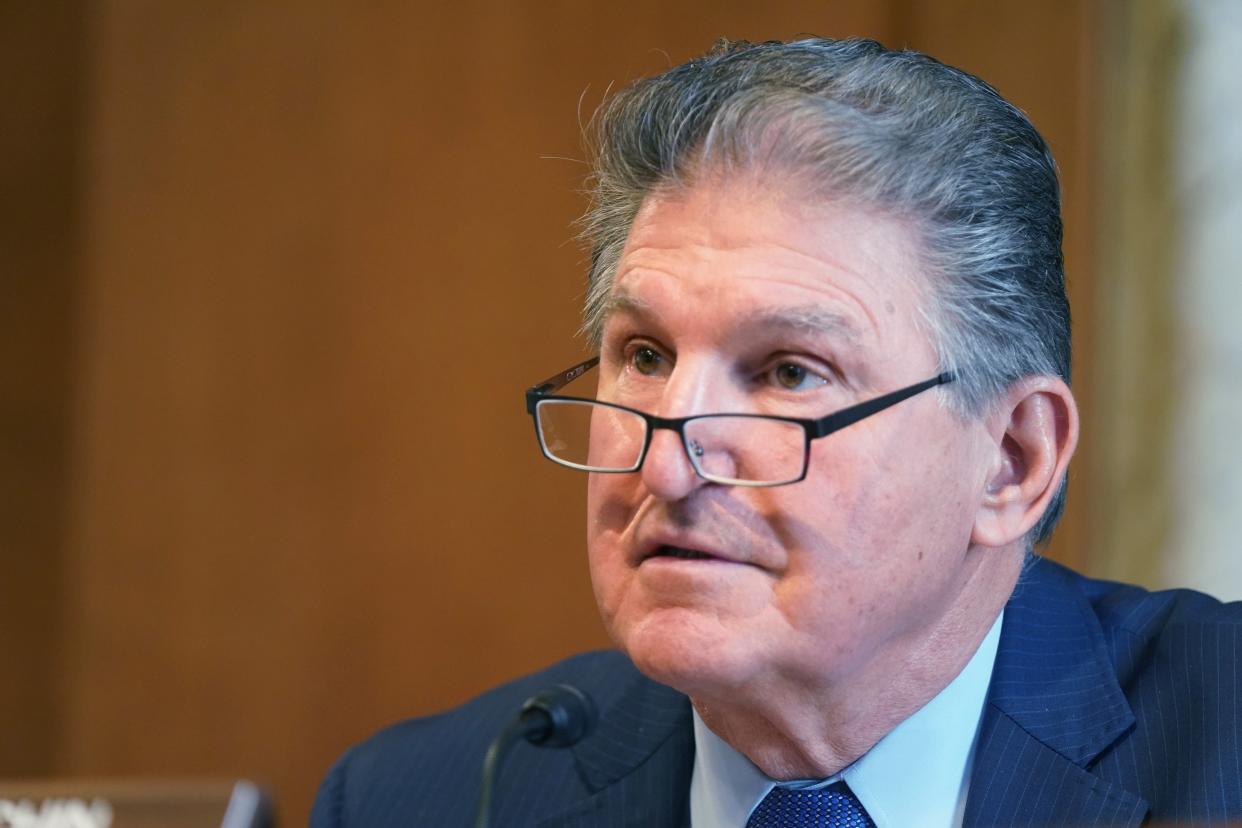Joe Manchin explains himself after Covid relief saga

After a chaotic week in the Senate in which he absorbed most of the political spotlight, Senator Joe Manchin blitzed the Sunday political talk show circuit to explain his position on everything from the $1.9trn Covid relief bill, to the minimum wage, to the bipartisan negotiation process in Congress.
The West Virginia Democratic senator – widely described as a “centrist” due to both his policy positions and his approach to the legislative process – held up passage of the Covid relief bill this weekend for hours over the size and duration of a key pandemic-era unemployment programme.
Fundamental to Mr Manchin’s governing approach is his belief in that the majority ought to negotiate as much as it can in good faith with the minority party. The Senate is split 50-50, but Democrats control the chamber since Vice President Kamala Harris casts any tiebreaker votes.
The filibuster
Mr Manchin is opposed to scrapping the Senate’s so-called “filibuster” rule that for decades has allowed the minority party in the chamber to check the power of the majority.
“I’m not going to change my mind on the filibuster,” he said on Sunday in an interview with NBC. “It takes listening to the minority to make sure the majority is getting it right.”
Since 1975, Senate rules have required 60 senators to vote to “invoke cloture” – that is, end debate – on any piece of legislation and bring it up for a vote. That, in effect, has meant a bill needs 60 senators to support it for it to pass – not the simple 51-vote majority outlined in the US Constitution.
During the 1950s and 1960s, when ending a filibuster required two-thirds of the chamber to vote to end debate, Democratic senators from southern states used it to shut down several civil rights bills.
But Mr Manchin signalled on Sunday that he could support broad use of the same legislative process that allowed Senate Democrats to pass this weekend’s $1.9trn Covid package on a 50-49 party-line vote, a process known as “budget reconciliation”.
“There’s no need for us to go to reconciliation until the other process has failed – that means the normal process of a committee, a hearing, amendments,” the senator told NBC on Sunday, when asked whether he would support the partisan reconciliation process to make moves on a voting and government ethics reform package passed by the House last week.
He left the door open, however: “I will change my mind if we need to go to a reconciliation ... [if] we have to get something done,” he said.
But Mr Manchin would only allow Senate Democrats to kickstart the partisan reconciliation process once “my Republican friends have the ability to have their say also,” he said.
The minimum wage
Mr Manchin was one of seven Senate Democrats last week to vote against raising the minimum wage to $15 per hour over the next five years as part of the Covid package.
No senator – Republican or Democrat – thinks the minimum wage should remain at its current $7.25 per hour rate, he said.
Congress has not passed a minimum wage hike since early in the Obama administration.
“There’s not one senator out of 100 that does not want to raise the minimum wage. Not one,” Mr Manchin said in an interview with CNN on Sunday.
Mr Manchin has proposed that Congress should raise the federal minimum wage to $11 as a baseline, and higher for certain parts of the country where the cost of living is pricier – places such as California, New York, and Massachusetts, for instance.
“Once it gets above $11 it should be indexed, so it never becomes a political football again,” Mr Manchin said in his CNN interview.
Senate Budget Chairman Bernie Sanders, who sits on the opposite end of the ideological spectrum from Mr Manchin within the Senate Democratic caucus, has vowed that a Democratic Congress and White House will pass a minimum wage hike.
The ‘moderate middle’
In an interview with ABC on Sunday, Mr Manchin explained that he did not ask to be put in a position of such individual leverage over the legislative process for these first two years of Joe Biden’s first term.
But he’ll be making the most of it to cater to his West Virginia constituents who he believes want him to bridge the gap between two deeply divided political parties.
“I didn’t lobby for this position. I’ve never changed, Martha. I’m the same person I have been all my life and since I’ve been in the public offices, I’m the same. I’ve been voting the same way for the last 10 years,” Mr Manchin said.
“I look for that moderate middle. The common sense that comes with the moderate middle is who I am. That’s what people expect. My state of West Virginia, they know me, they know how I’ve governed. I’ve tried to basically represent them [to] the best of my ability.”
Read More
Manchin, key Senate swing vote, boosts West Virginia's hopes
Why is Joe Manchin really causing trouble for Joe Biden? Not for the obvious reasons
Joe Manchin and Kyrsten Sinema are holding American democracy hostage

 Yahoo News
Yahoo News 
